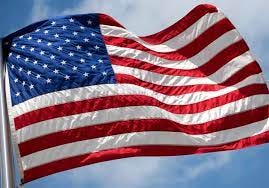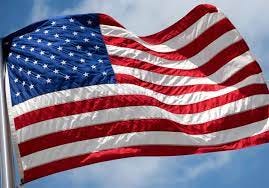The Significance of Freedom: Understanding Its Importance, Types of Governments, and Global Ranking
Exploring the Importance of Freedom, Countries with the Most and Least Freedom, and the Role of Government in Preserving Individual Rights
Do you understand what is at stake when people say OUR FREEDOMS are being taken away?
Freedom is a fundamental human right that is essential for human happiness, well-being, and economic prosperity. It allows individuals to make their own choices, express their opinions, and pursue their own goals. It also enables people to hold their governments accountable and to participate in the democratic process. Without freedom, individuals are at risk of being controlled, oppressed, and exploited by those in power.
Moreover, freedom is necessary for economic growth and prosperity. When individuals are free to innovate and pursue their entrepreneurial aspirations, they can create new businesses, technologies, and services that improve people's lives. Free markets, in which individuals are free to buy and sell goods and services without government intervention, can lead to greater economic efficiency and prosperity.
Types of Governments
The level of freedom in a country is often determined by the type of government that exists. There are several types of governments, including:
Democracy: A form of government in which power is held by the people, who exercise their power through elections and representative institutions.
Monarchy: A form of government in which a single person (usually a king or queen) holds supreme power.
Dictatorship: A form of government in which power is concentrated in the hands of a single individual or group, who exercise their power without being accountable to the people.
Theocracy: A form of government in which religious leaders hold supreme power and the laws are based on religious doctrine.
Constitutional Republic: A form of government in which the powers of the government are limited by a constitution, and the rights and liberties of the citizens are protected by that constitution. In a constitutional republic, the government is run by elected representatives who are responsible to the people
and are subject to the rule of law.
Countries with the Most Freedom
The Human Freedom Index (HFI), published by the Cato Institute, measures the level of personal, civil, and economic freedom in 162 countries. According to the 2021 HFI, the countries with the highest levels of freedom are:
New Zealand
Switzerland
Hong Kong
Denmark
Australia
These countries scored highly on personal freedom (the ability to express oneself, associate with others, and engage in religious and cultural activities), civil freedom (the rule of law, freedom of the press, and freedom of assembly), and economic freedom (the ability to own property, enter into contracts, and engage in voluntary trade).
Countries with the Least Freedom
The countries with the lowest levels of freedom, according to the HFI, are:
Syria
Venezuela
Yemen
Iran
Iraq
These countries scored poorly on personal, civil, and economic freedom indicators, indicating that individuals in these countries face severe restrictions on their freedom of expression, association, and economic activity.
The United States as a Constitutional Republic
The United States is a federal presidential constitutional republic, which means that power is divided between the federal government and the individual states, and the President of the United States is the head of state and head of government, with his powers limited by the Constitution. In the U.S., the Constitution serves as the supreme law of the land and establishes a system of checks and balances to ensure that no single branch of government becomes too powerful. The U.S. also has a bicameral legislature, consisting of the House of Representatives and the Senate, which makes and passes laws. Overall, the United States is known for its strong democratic institutions and tradition of free and fair elections.
Conclusion
Freedom is a fundamental human right that is essential for human happiness, well-being, and economic




